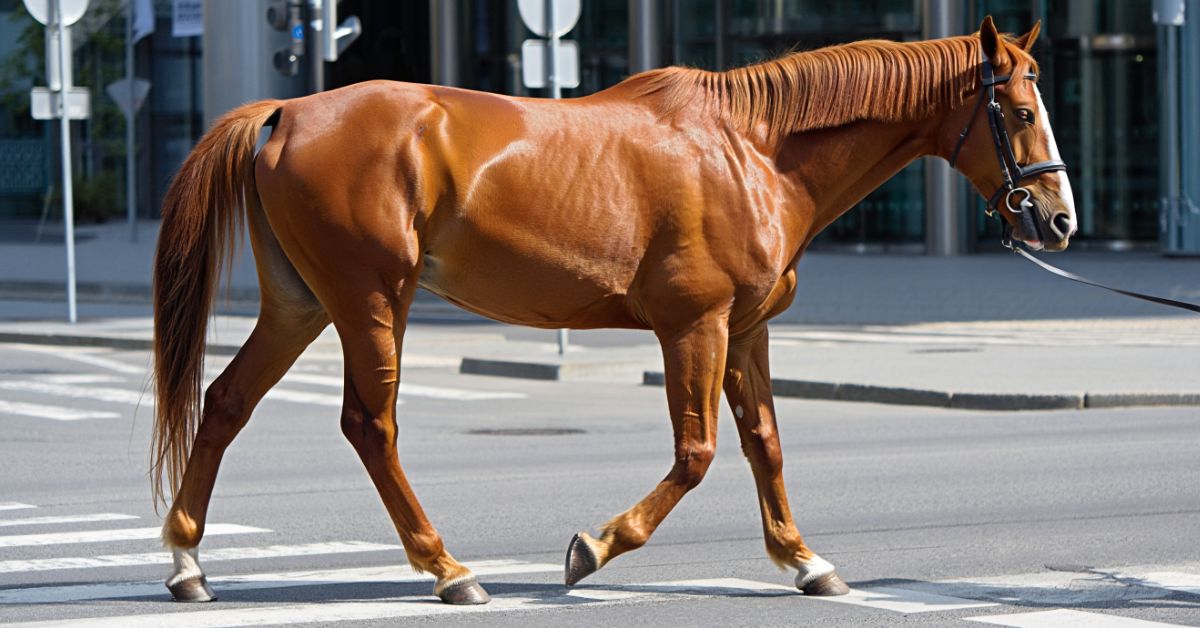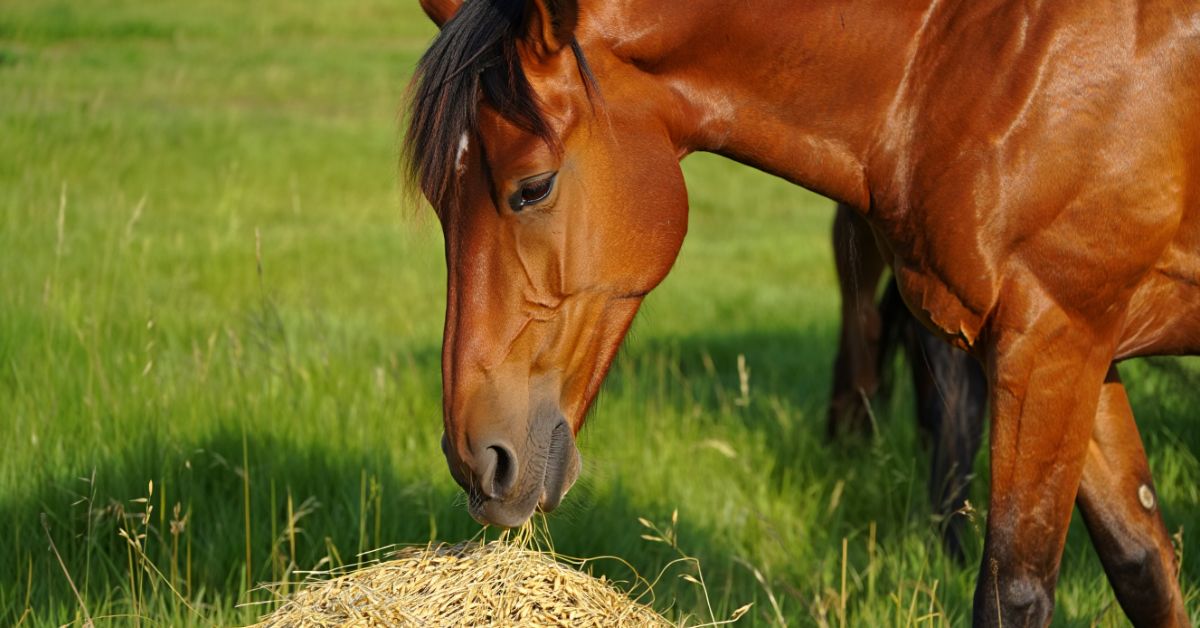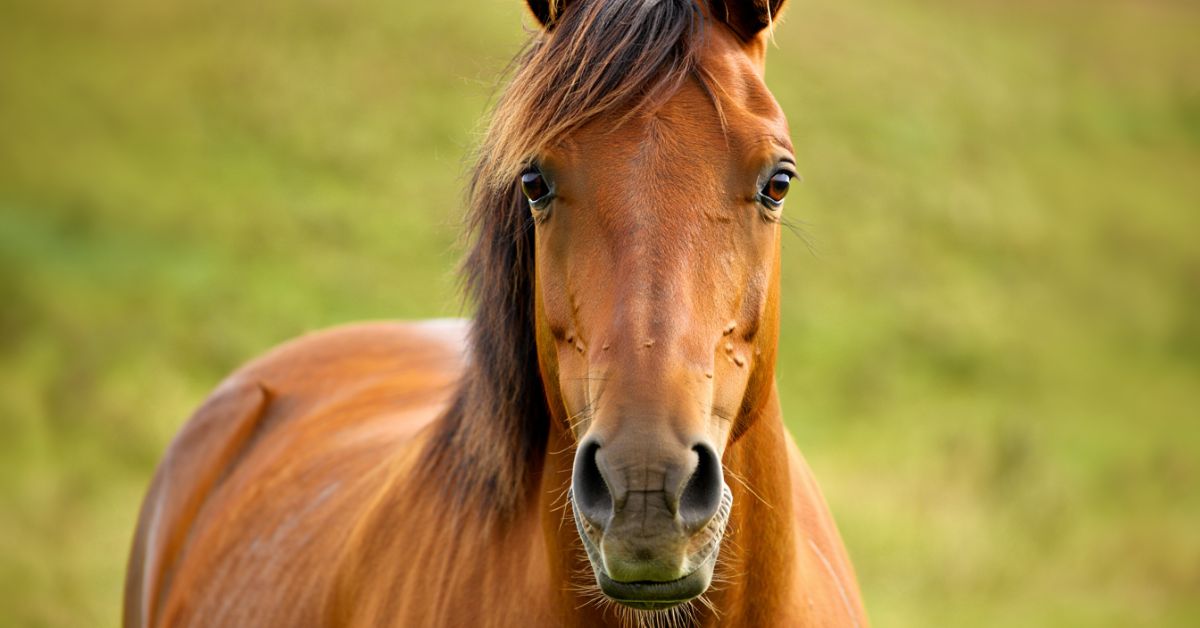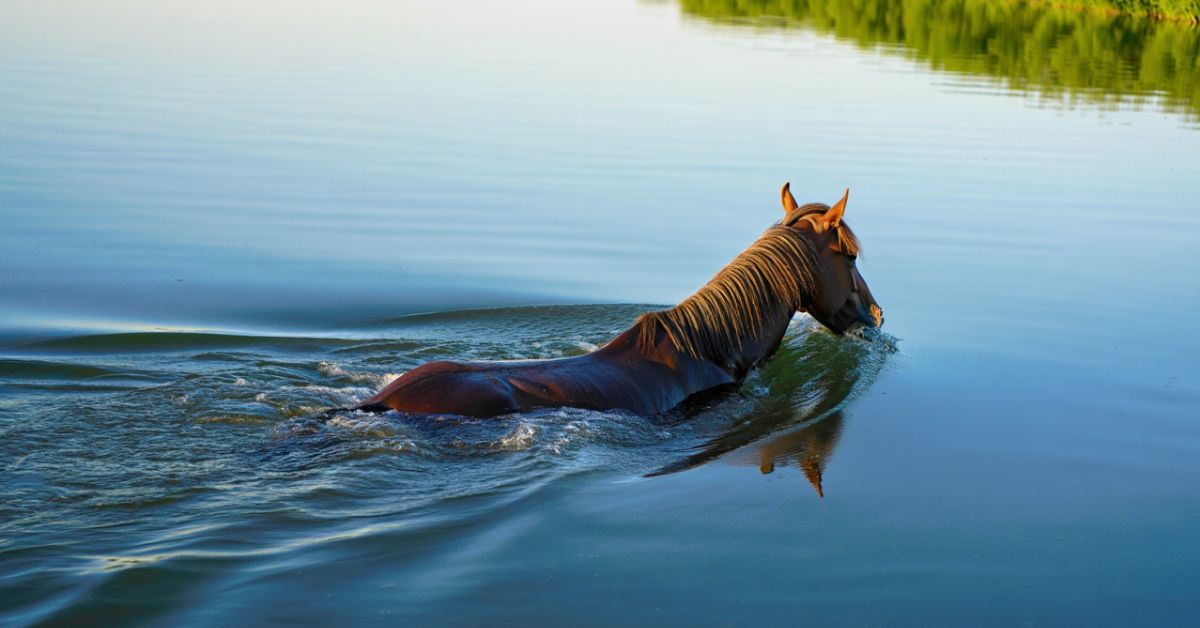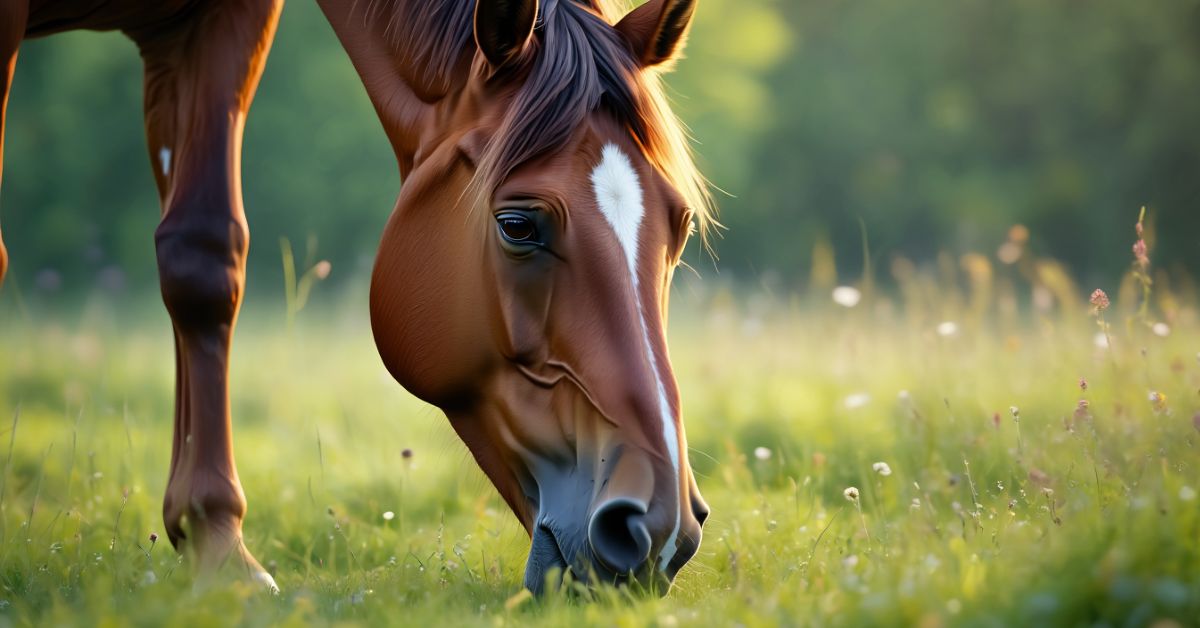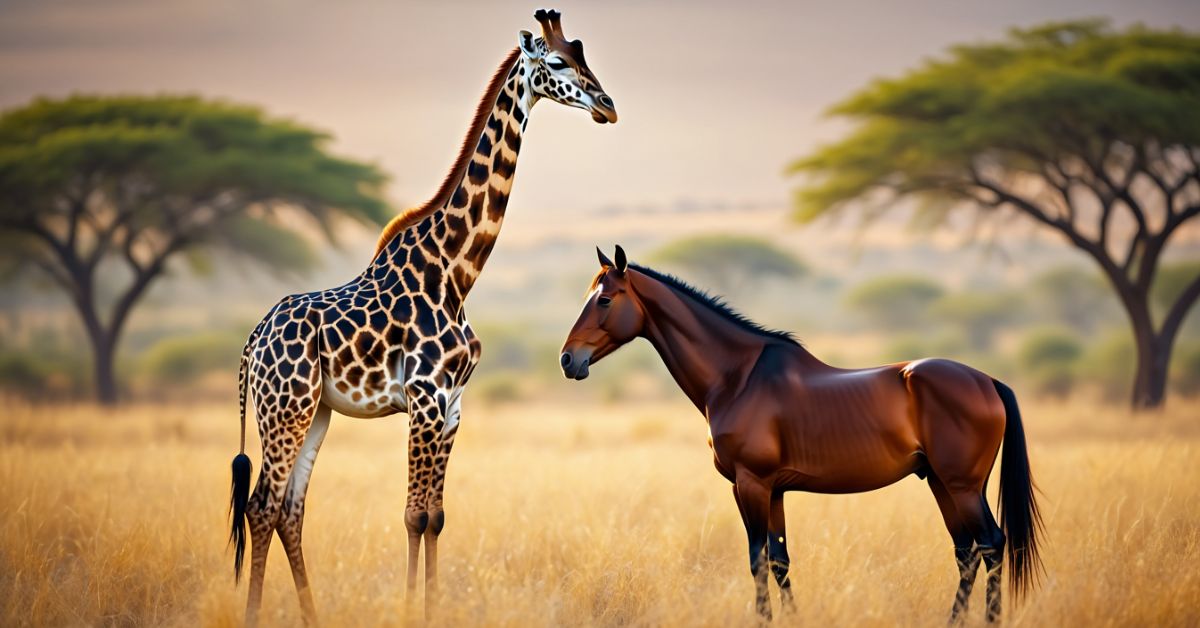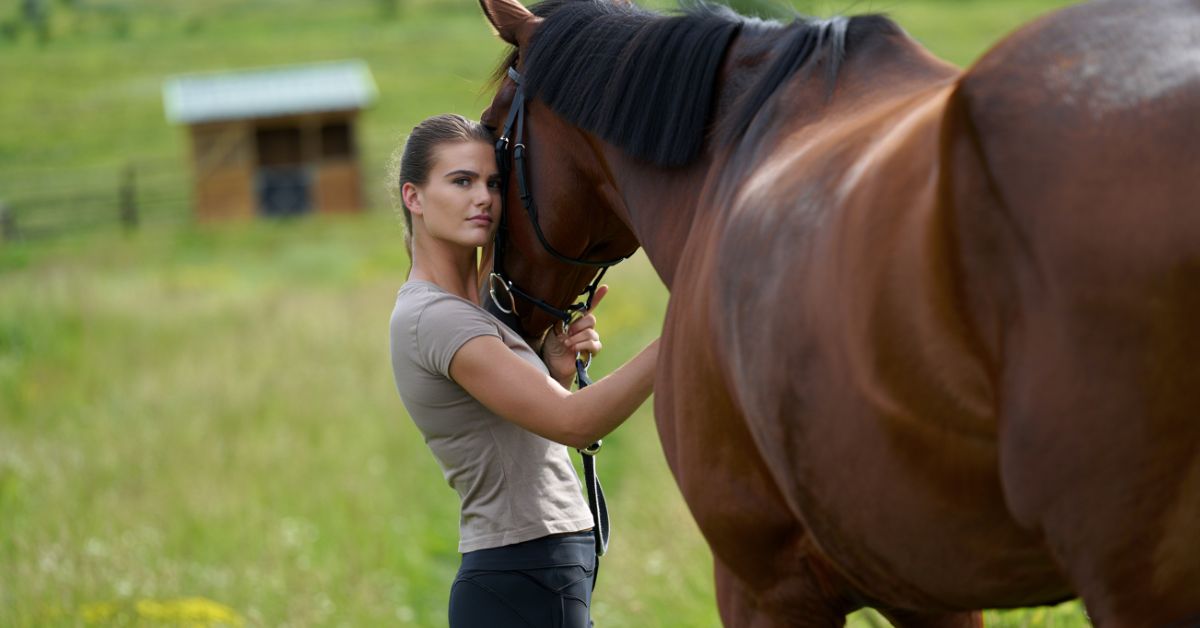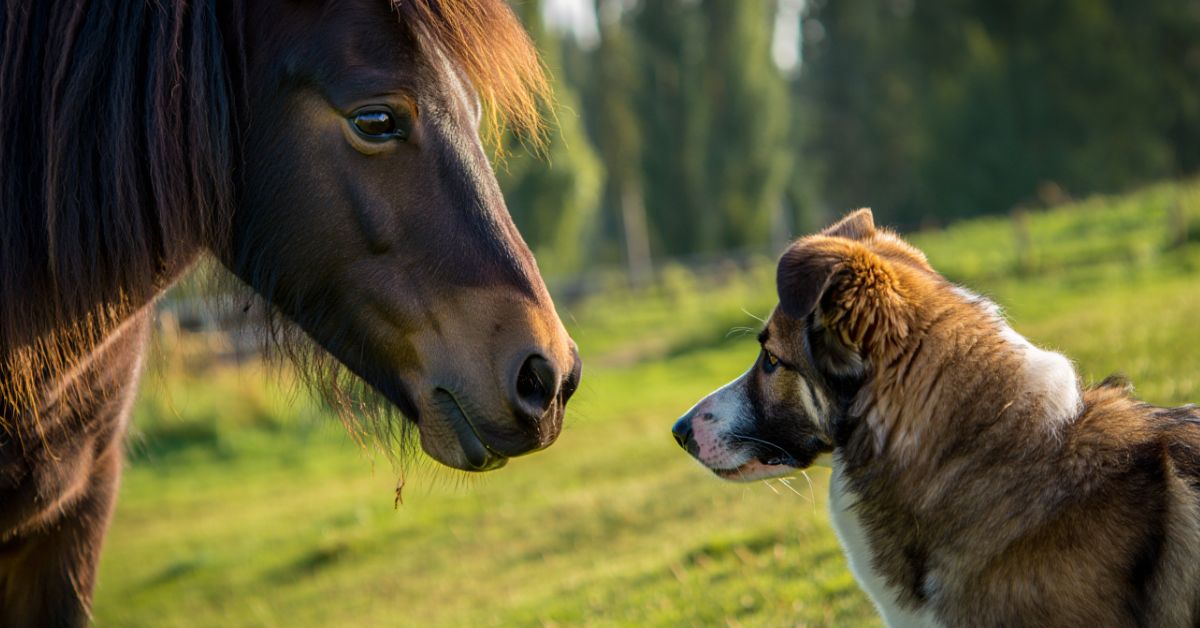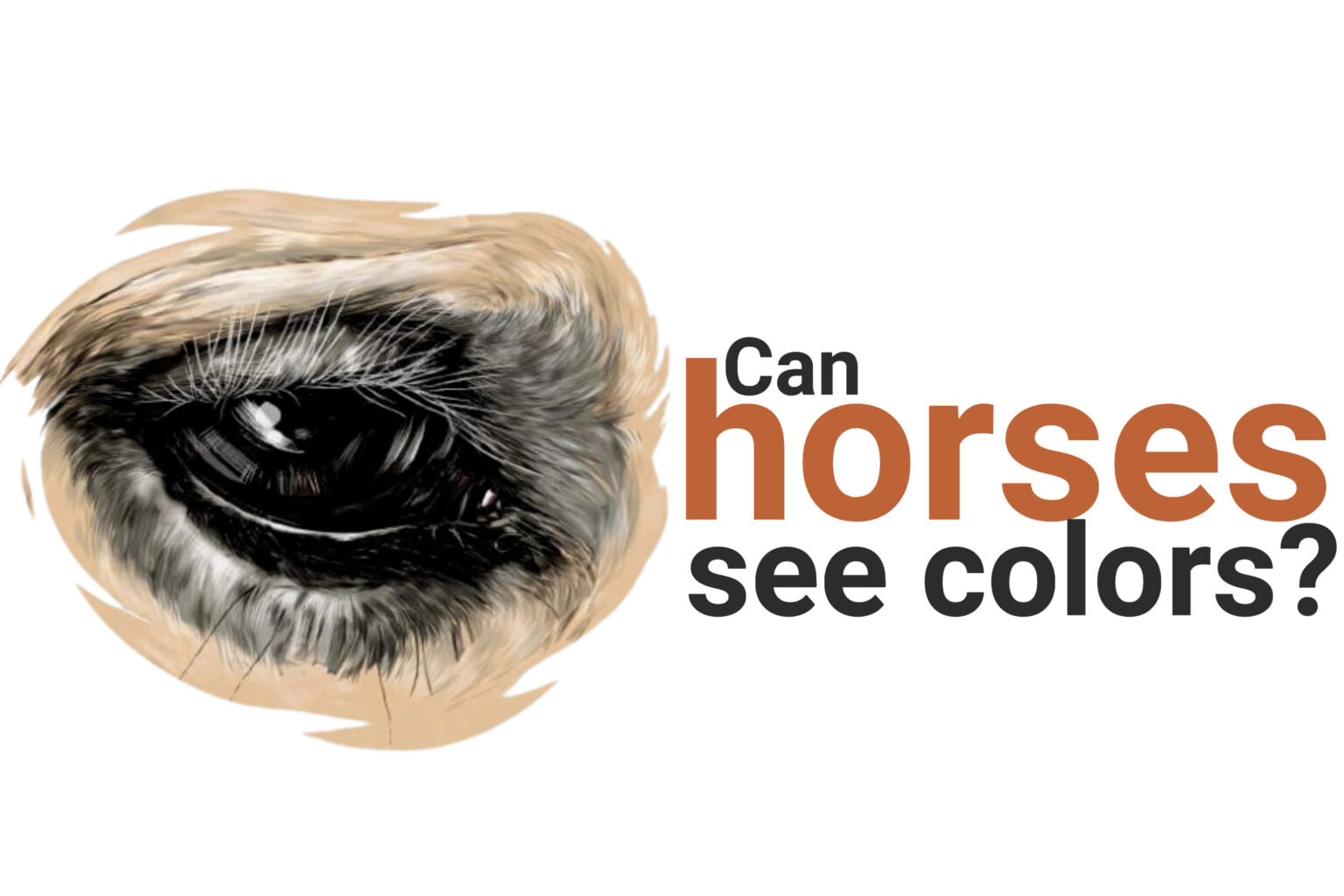
Can horses see color?
Yes, horses can see colors, but not as well as humans. The cone cells in the retina of the eye are responsible for color vision. Horses have dichromatic (bicolor) color vision, meaning that they absorb light maximally in the short wavelengths and the second cone cell absorbs the medium to long wavelengths. In contrast, humans have trichromatic (three-color) cone cells. Horses can see some colors, but it is different from the way you see colors.
Because horses are active during the day, dusk, dawn and night, their eyes are designed to have both high sensitivity for low light vision and good visual acuity under higher light levels. But their night vision is not nearly as good as that of cats and dogs. Based on an evaluation of their retinal cells, as well as behavioral tests, researchers believe that horses have the ability to easily distinguish red or blue from gray. Their ability to differentiate yellow from green is not as good. Beyond that, it is difficult to test color vision.
Anatomy of the eye and visual field
The horse’s eyes are larger than almost all mammals. Their diameter is twice that of humans. The eyes are arranged laterally, but they project forward. This gives them a panoramic view of the world. Each eye has a horizontal field of view of approximately 190o and a vertical field of 180o. Put together, the arrangement of the two eyes gives them an almost completely spherical field of view. However, they have two narrow blind spots, one directly behind the head and the other just in front of and below the nose. One must be aware of these blind spots when approaching an animal, especially from behind. When passing behind it, it is essential to talk to it to let it know you are there. Because their eyes see forward, horses have an overlapping binocular field of vision that can help them see in depth.
➤ Also Read: How far can a horse run?
Focus and adaptation
For a long time, it was believed that horses could not change the shape of the lens of their eyes to adjust them to see different distances. It was believed that they had “swollen retinas” where different parts of the retina were at different distances from the lens. Focusing was thought to occur by raising and lowering the head, as humans do with bifocal lenses. However, recent research has shown that the retina is not swollen and that horses really do have a limited ability to accommodate by changing the thickness of their lenses.
Visual Acuity
Acuity, the ability to see the smallest details, depends on the size of the eye and the density of individual visual receptors (rods and cones). In the horse, although the receptors are not as numerous as in humans, the size of the receptors probably contributes to their visual acuity, which is better than in most mammals. A horse has 2/3 the visual acuity of the average human (i.e., 20/30 versus 20/20).
Depth perception
People use both monocular and binocular data to make judgments about distance, although binocular sensations give the most accurate information. The sense of “real” depth that we get from old stereoscopes and 3-D movies relies on this binocular data. Because of their lateral eyes, it has been suggested that horses could only use monocular depth sensations, such as relative size or perspective. However, their overlapping binocular fields allow for stereoscopic vision. In addition, studies have shown that they have stereopsis, or three-dimensional vision. Their eyes are not as accurate as those of humans, but their stereoacuity is sufficient to allow them to judge height and distance very well when crossing barriers.
What colors can horses see?
There is a misconception that the most domesticated animals cannot see colors. This is not true. This is not true even though their color discrimination is not as good as ours. The ability to see colors depends on the presence of several kinds of cone receptors on the retina. Most people have three types of cones that allow them to see a range of colors. Some people are missing one of these cones.
Delight the little horse lovers in your life with our fun and engaging horse-themed toys collection! Explore our playful Horse Toys that will keep them entertained for hours. Bring home a charming Horse Figurine for a touch of elegance, or let them bounce with joy on a fun Bouncy Horse. For cozy cuddles, check out our soft Plush Horse or a timeless Rocking Horse. If you’re looking for something extra special, a sturdy Wooden Rocking Horse will make a lasting gift. Don’t forget to challenge their minds with a fun Horse Puzzle. Shop now to bring the magic of horses into their playtime!
However, they can still see colors, but they will confuse reds, greens and browns, for example. Horses only have two types of cones, so they probably see the world in the same way that a human cannot distinguish between red and green. They can easily distinguish red or blue from gray, but find it much more difficult to distinguish between green and yellow. Greens and yellows probably look similar, but they will look paler or darker than each other. The horse’s world will not be as colorful as ours, but it does not see in black and white. Color is important because it allows us to distinguish objects from the background. Poor color vision reduces this ability. For example, the rider can easily see a sitting rabbit or a bird, which will be invisible to the horse unless they are moving.
Can horses see in the dark?
Rods and cones are the receptors in the eye. The cones are used in bright light and the rods only when the light is very dim. People have about 20 cones for each rod, while in horses the ratio is 9:1. However, horses have an advantage over humans in dull light because they also have a tapetum lucidum, a reflective layer at the back of the eye that bounces back light that might otherwise be lost, so that it can be absorbed by the rods. It is the Tapetum that gives the “glow to the eye” when a car’s headlights cross a horse’s eyes at night. Although no formal studies have been done, it is almost certain that horses can see to some extent when it is very dark, without being able to discern detail. In daylight, the rods stop working, so when a horse has to enter a van, it may seem like a black hole to him. He will perceive it as a dark cave and have no idea what is inside. It is important for handlers to consider what the van may look like to the horse when persuading him to enter.
Conclusion
It is impossible to see through the eyes of another person (or animal), but it is possible to come to an understanding of what they can see by trying to understand their visual systems. We can assume that most people see the world in more or less the same way because we have the same visual apparatus. But the visual world of a horse, with its large eyes, panoramic field of vision, and differently organized retina, will not be quite the same as ours. For those who work with horses, it is important to keep this fact in mind. For example, many horse owners notice that an animal will spook at an object when passing it in one direction, but not when returning in the opposite direction. There is no anatomical basis for this separation of information between the two eyes, but it is true that each eye has a completely different view of the world. The horse’s brain must combine this information in a way that would not be appropriate for the human visual system. Similarly, the position of an animal’s head during training may be such that it cannot see objects directly in front of it clearly, because they are in its blind spot under its nose. When training and exercising, keep in mind that the horse has its limitations. If we understand more about how they perceive their environment with their five senses, it will be much easier for us to develop effective training programs for them.
Please feel free to join the secret club if you appreciated learning more about the topic covered above. Additionally, you will receive our entire book about horses as a gift, and you will receive an email preview each time a fresh piece is published on the website dream-horse.co.
Visit our shop to look through the top products for riders and their horses.
